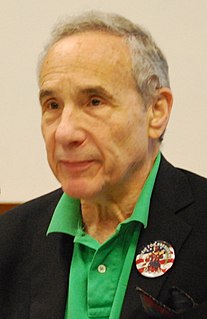A Quote by Larry Brilliant
One percent of the equity, 1 percent of the profits, and 1 percent of the people go into Google.org. The most important asset isn’t money, it’s people. One percent of the people means 60 or 70 of the smartest people in the world trying to solve some of the biggest problems in the world.
Related Quotes
What does a political revolution look like? It means that 80 percent of the people vote in national elections, not 40 percent. It means that billionaires can't make unlimited campaign contributions and buy and sell politicians. It means that the U.S. government represents the needs of all the people, not just the 1 percent and their lobbyists.
Economists often talk about the 80/20 Principle, which is the idea that in any situation roughly 80 percent of the “work” will be done by 20 percent of the participants. In most societies, 20 percent of criminals commit 80 percent of crimes. Twenty percent of motorists cause 80 percent of all accidents. Twenty percent of beer drinkers drink 80 percent of all beer. When it comes to epidemics, though, this disproportionality becomes even more extreme: a tiny percentage of people do the majority of the work.
The most encouraging sign is that 71 percent of the public believe the system is profoundly corrupted by the power of money. Ninety-six percent of the people believe it's "important" that we reduce the influence of money. Yet 91 percent think it's "not likely" that its influence will be lessened. Think about that: People know what's right to do yet don't think it can or will be done.
About forty percent of the people vote Democrat. About forty percent vote Republican. Of those eighty percent, most wouldn't change their votes if Adolf Hitler was running against Abe Lincoln - or against FDR. . . . That leaves twenty percent of the people who swing back one way or another . . . the true independents. . . . That twenty percent controls the destiny of the country.
I'm going to create tremendous jobs. And we're bringing GDP from, really, 1 percent, which is what it is now, and if Hillary Clinton got in, it will be less than zero. But we're bringing it from 1 percent up to 4 percent. And I actually think we can go higher than 4 percent. I think you can go to 5 percent or 6 percent.





































